Graffiti two blocks from my door, here in Jaffa. More often, I feel numb.
I biked along the sea late Tuesday afternoon, returning from northern Tel Aviv to Jaffa. The IDF had just issued a warning that an attack by Iran was expected within hours. The beaches immediately shut down. Lifeguards left their posts. Cafes and snack bars closed. The sea was unusually choppy. A few expert surfers took advantage of the high surf, slicing through the breakers, backlit by the harsh late afternoon sun.
Back in Jaffa, where I live, people rushed to pick up what they needed for Rosh Hashanah and get home safely to shelter before the expected attack. With Rosh Hashanah starting the following evening, stores would be closed for three days. I also needed to complete my shopping. Earlier in the day, I went to my butcher, who recommended getting some beef ribs, a cut that Israelis call asado. He had them cut, packaged, and ready for me when I returned.
From the butcher, I walked by my corner café, Deli Alhambra. I saw the owner and said I’d be coming by for dinner with a friend, joking that I hoped Iran would wait until late at night to attack. Then, I walked four blocks north on Jerusalem Boulevard and stopped at two stores that flank the light rail station. Jerusalem Boulevard is a major thoroughfare in Jaffa. The light rail train runs along the middle. There is a separate pathway for bikes and scooters and another for pedestrians. No automobiles are permitted. Walking the few blocks back to my apartment, I noticed the streets emptying. As dusk fell, the atmosphere was uneasy.
Ten or fifteen minutes after I reached my apartment, two Hamas terrorists got off the train, firing streams of bullets from an M-16. I didn’t hear the gunfire inside my apartment, but I heard the screaming of sirens from all kinds of emergency vehicles. The variety and number of vehicles strongly suggested that something terrible was happening. We quickly learned that there had been a terrorist attack involving multiple casualties.
At 7:30 pm, the first sirens sounded, alerting all of Israel that Iran had launched their missiles. I was tempted to walk to the sea and observe the missiles heading for Tel Aviv and the expected interceptions. But I followed directions and stayed in my shelter. At midnight, the IDF said it was safe to resume regular activity.
It took a while to get details about the attack. Two men, one 19 and the other 25, who looked like any other Israelis on the light rail train, arrived at the station, killed seven people, and wounded 16 others. Four of the victims were young women. Shahar Goldman, a dancer in Tel Aviv, age 30, and Inbar Segev Vigder, age 33, were on the train together. Both were married last year. Inbar had a baby named Ari, who was born last December. One of the victims was a Greek citizen named Jonas Chrosis, who was living in Jerusalem and studying architecture in Tel Aviv.
From Times of Israel, published October 2:
Diana Svertzov, an Israeli gymnast who won a silver medal at the Paris Olympics, was at the light rail station at the time of the attack and told Channel 12 that the terrorists did not seem suspicious, and one of them was wearing a pin representing solidarity with Israelis held hostage in Gaza by the Hamas terror group. “One of them looked at my Olympics necklace and smiled at me. They didn’t look like terrorists. One of them had an M16 rifle, and the other one was in a polo shirt with a hostage pin. There was no reason to be suspicious. It never crossed my mind what was about to happen.” she said.
Inbar Segev Vigder and her baby Ari. Inbar shielded and saved the life of her 9-month-old son, Ari, who no longer has a mother. The killing began on the train. October 1, 2024
In the same hour that the Hamas killers arrived in Jaffa, Iran launched 180 missiles targeting civilian and military sites. The missiles killed one person, who, ironically, was from Gaza. He was a 37-year-old man who was in the West Bank, apparently there to evade the violence in Gaza. He was killed by debris from an Iranian missile. The Hamas terrorists, using a rifle and a knife, killed far more people than Iran’s missiles
Missiles fired by Iran over Israel. October 1, 2024
In the morning, I felt the need to get out of my apartment after the attack in my neighborhood and after sheltering in my mamad (safe room), which is also my bedroom. I walked to a nearby café called Nisso. This café is part of a school with classes for actors and writers. It is a few blocks from the light rail station that was the scene of the terror attack the night before. The vibe at the café seemed normal. People were chatting and laughing despite it all. Some arrived carrying bouquets of flowers and challot (challah breads) for the holiday. A man bicycled in front of the café while holding a surfboard with one arm. Most conversations were in Hebrew. One will hear French and Russian at times. I was surprised to see two Arab women, one of them in a hijab. Well over one-third of Jaffa residents are Arab. There are Arab cafes where you can see some Israeli Jews. I rarely see Arabs in Jewish cafes. On the other hand, it is crucial to understand that Arabs and Sephardic Israelis (who comprise more than half the population) look the same. Most Arabs speak Hebrew. Many Israeli Jews also speak Arabic.
I first spent about six weeks in Jaffa last year. When I returned to Israel this past April, I rented the same apartment I had found last year. Jaffa has a beach vibe. I bike to the beach almost every day. I need my fix of Vitamin D and the salty water. I always hope the waves are strong so I can body surf. The board surfers arrive in the morning, walking many blocks barefoot on their way to the sea. Other surfers come on bicycles outfitted with a device that holds their surfboard. Occasionally, you’ll see a religious woman sitting with her back against a stone wall and praying with her siddur. There were weeks this past summer when the café at my beach played Bob Dylan’s song “Forever Young” to start the day.
The ‘Forever Young’ theme sums up the scene at the sea at all hours. On afternoons at the sea, women populate the beach wearing bikinis, perfecting their tans and resembling odalisques. Where are the men? Is that a symptom of the war? For that matter, all of Tel Aviv is forever young. The median age of people in Tel Aviv is 29 (compared to 37 in Manhattan). 20-something people dominate cafes, bars, and restaurants. Most people in their 30s are married with children.
I’ve made friends with people at the Zichron Baruch synagogue in Jaffa. Some are olim (people who made aliyah), but most are Israelis. The diversity of the people at the synagogue reflect Jaffa. It’s an orthodox synagogue like most in Israel. There is no dress code in a synagogue like this. I wear shorts, sandals, and a comfortable shirt, as do many, during these hot months. A few men are especially observant and have peiyot or peyios (Yiddish for sidelocks). Women wear relatively modest dresses. Most do not cover their hair. The spiritual energy is powerful. This weekend of Rosh Hashanah, the singing and dancing (men on one side, the women on the other side of the mechitzah) was wild. It felt cathartic in the wake of the terror attack in Jaffa, the missile strikes, and the imminence of the first anniversary of 7 October. I am sometimes called up to say the blessing before and after the Torah reading. On Saturday mornings, a kiddush is held in the street. Out come folding tables—plates of cheeses, herring, quiche, tahina, labneh, salad, bottles of wine, and whiskey.
There is a significant singles scene at the synagogue, but I generally feel outside the consideration of the women there because of my age and my limited Hebrew. Not only is my Hebrew basic, but I also have only a fraction of the knowledge that most members of the shul – women and men- possess. There are many couples with young children. The average couple in Israel has three children. Many babies have been born and celebrated recently – those conceived after 7 October. People anywhere near my age have grandchildren.
I chronically lose my place in services. I often ask the person next to me to help me find my place again. I often become bored at the repetition of portions of the service. What redeems my experience is singing the melodies I already knew and many new ones with the men around me.
Family members who don’t live occasionally show up for Shabbat and on holidays. They are often young men who are soldiers. One becomes accustomed to seeing them praying with automatic weapons on their shoulders. Some of the older men have pistols jammed in the waistband of their jeans and other pants. Never before have I felt protected by soldiers or veterans with weapons or the actions of an army. In my lifetime, there was Vietnam, the Gulf War, and the wars in Afghanistan and Iraq. Of course, the US has never had to fight to repel enemies at its borders. Almost every Israeli, men and women (excluding the ultra-Orthodox), serve in the army or a civil service capacity. I didn’t. Men I have talked with here who trained and fought in an army unit look back at those years as fundamental to their maturity. When they are called back to the reserves, they are reunited with their unit. They speak of their unit as a family.
While I waited my turn, the soldier in front of me carefully placed his weapon on the floor before getting his hair cut.
Throughout Israel and around the world, congregations sing with profound intention the Mi Sheberach L’tzahal, the song of blessing for the Israeli armed forces. Singing it together in my congregation, I am deeply moved. Here is a recording by singer Eli Levin, who is based in Brooklyn, New York:
The prayer, translated:
God, Who blessed our forefathers Abraham, Isaac, and Jacob - may He bless the fighters of the Israel Defense Force, who stand guard over our land and the cities of our God from the border of the Lebanon to the desert of Egypt and from the Great Sea unto the approach of the Aravah, on the land, in the air, and on the sea.
May God cause the enemies who rise against us to be struck down before them. May the Holy One, Blessed is He, preserve and rescue our fighting men from every trouble and distress and from every plague and illness, and may He send blessing and success in their every endeavor.
May He lead our enemies under their sway and may He grant them salvation and crown them with victory. And may there be fulfilled for them the verse: For it is Hashem, your God, Who goes with you to battle your enemies for you to save you.
Now let us answer: Amen.
Over 100 hostages, alive and dead, remain in the underworld of Gaza. I won’t forget waking in the middle of the night on October 7, in my home in Kalamazoo, to WhatsApp texts from friends in Jerusalem, trying to make sense of the first news of the invasion of Israel by Hama. Although I often feel dislocated here, I think I am in the right place.
Israelis tell me that fall is in the air now. I sense the lessening of humidity that made one feel limp all summer. I miss the changes in seasons that I grew up with on the East Coast and in Michigan. I miss going into my garden back in Kalamazoo to see how my trees are doing. Right now, the figs on my carefully nurtured fig tree in Kalamazoo should have lots of ripe fruit.
The other source of dislocation for me is that I am not teaching. That is to say, I am teaching online, asynchronously. I only meet ‘live’ four times in the semester, and only with the few students who want to meet ‘live.’ The rest can watch a recording to do well on tests. I am fortunate that I wrote my interactive ebook during the pandemic. During the next two years, I edited the text, met copyright needs for over 200 photographs, and produced videos embedded in the chapters. I know it's good stuff, but I don’t get to be ‘in the room’ when they are learning.
A new year began this week. The year ahead will be tough. Israel is very much alone. Even our allies, foremost, the United States, don’t get it. The United States and all Western powers want Israel to respond ‘proportionally.’ Michael Oren, the former Israeli ambassador to the United States, sums things up succinctly in his Substack column this week:
A truly proportionate response—hitting Tehran with the same 25,000 rockets and missives that Iran and its proxies have fired at us since October 7—would not, however, be acceptable to the West. Israel, American and European leaders state, has every right to defend itself but must exercise that right prudently. In practice this means that there is no effective counteroffensive action that Israel can legitimately take. Israelis can only sit and be pummeled by enemy barrages until our interceptors run out. Israelis can only legitimately die.
. . . (Western allies of Israel) inhabit a universe utterly alien to ours. In their world, the mass murderers in Tehran can be induced to de-escalate by means other than escalation. In their reality, wars against terrorists who hide behind and under their civilian population can be won without harming those civilians, and jihadists can be mollified by creating a Palestinian state. American and European leaders live in a simple, rational region that bears not the slightest resemblance to the real Middle East.
The anniversary of October 7 is tomorrow, a day situated between Rosh Hashanah and Yom Kippur. Last year, October 7 was on Simhat Torah, the deliriously happy day to dance with the Torah when Jews complete the annual cycle of reading the Torah and beginning again. Observant Jews do not use phones during this holiday. I listened to many stories in which someone heard the news that Israel was under attack and burst into Simhat Torah celebrations and and told everyone to get their weapons and boots and find their unit.
Israel is still in that moment. One tries to do what the calendar indicates. We go out to buy food, wine, and flowers for Rosh Hashanah, only to find out we have to get to bomb shelters. Not to mention being confronted on our street by two men who seemed like us, only to learn that they were death-dealing jihadists.
Note: I wrote about my experience in the Gaza envelope with a guide who survived the Nova music festival on October 7 in a post titled, The Dew of Light: https://psolomon.substack.com/p/the-dew-of-light?r=18m707
Rosh Hashanah reminded me of my grandmother – my father’s mother, who was born in Budapest and met my grandfather in Jerusalem. They lived in fearful times. He was conscripted by the Ottomans and sent to Europe to fight in the German army after he and my grandmother married and had their first child. Arriving at the front, my grandfather was afraid the French would kill him. Neither did he want to fight for Germany. He used his gun to shoot himself in the leg. Fortunately, the officers believed his story that he was shot in a battle. In the photograph below, he is recovering from his self-inflicted wound. His wife and son (my uncle) were still in Jerusalem.
My grandfather is standing, fourth from the right. He has a dark mustache, a hat worn on a slight angle, with his hand on the man seated in front of him. 1918.
Every Rosh Hashanah, we chant repeatedly a poem that reminds us that on Rosh Hashanah our fate is written and on Yom Kippur it is sealed. My grandmother would cry out with fear as she joined in reciting the following:
On Rosh Hashanah it is written, and on Yom Kippur it is sealed.
How many will pass and how many will be created?
Who will live and who will die?
Who in their time, and who not their time?
Who by fire and who by water?
Who by sword and who by beast?
Who by hunger and who by thirst?
Who by earthquake and who by drowning?
Who by strangling and who by stoning?
Who will rest and who will wander?
Who will be safe and who will be torn?
Who will be calm and who will be tormented?
Who will become poor and who will get rich?
Who will be made humble and who will be raised up

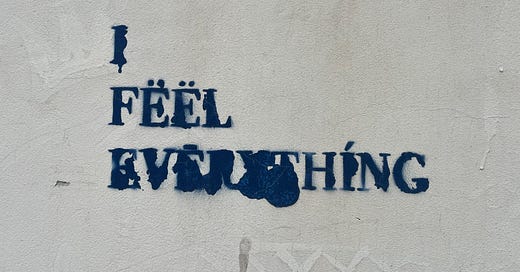



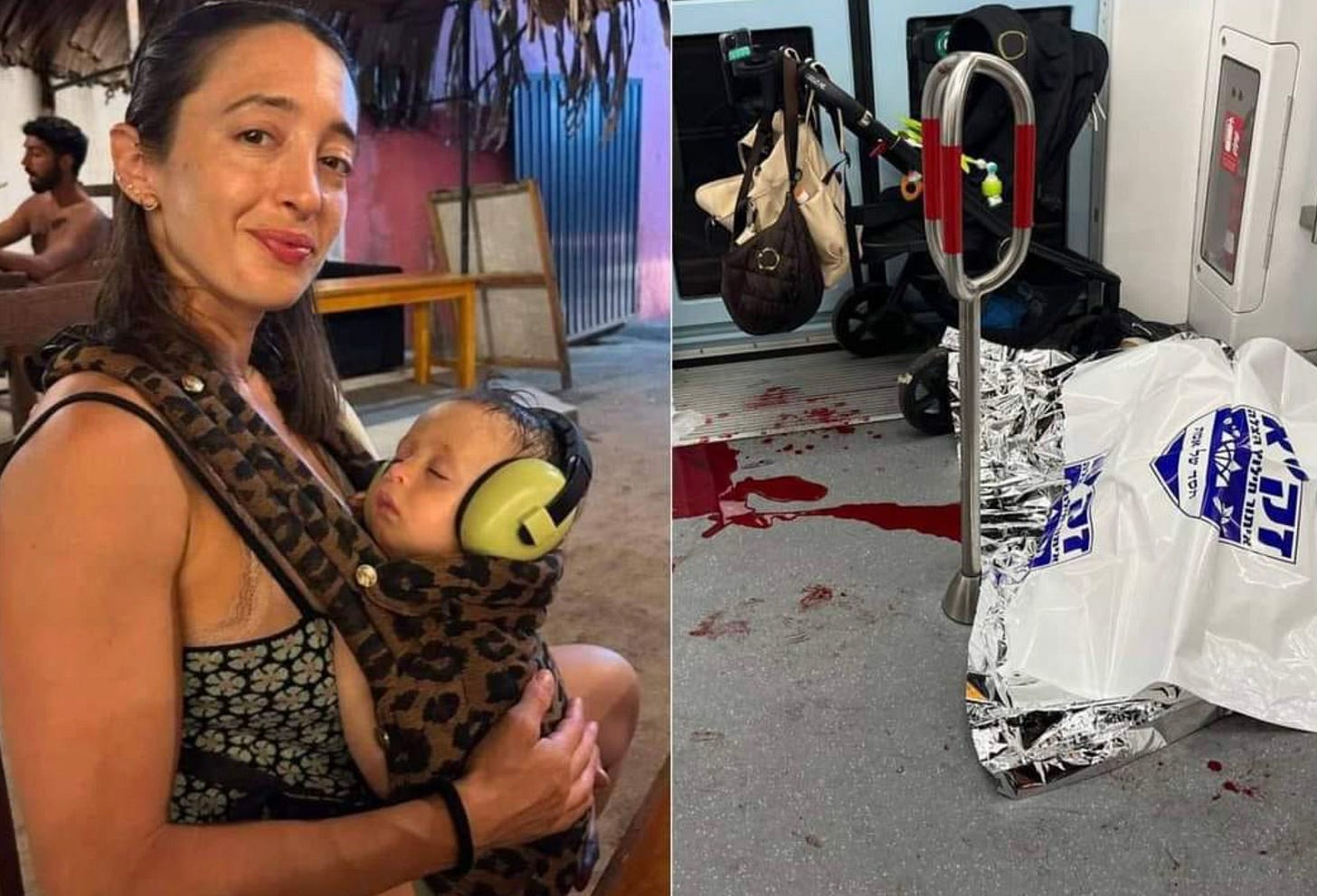
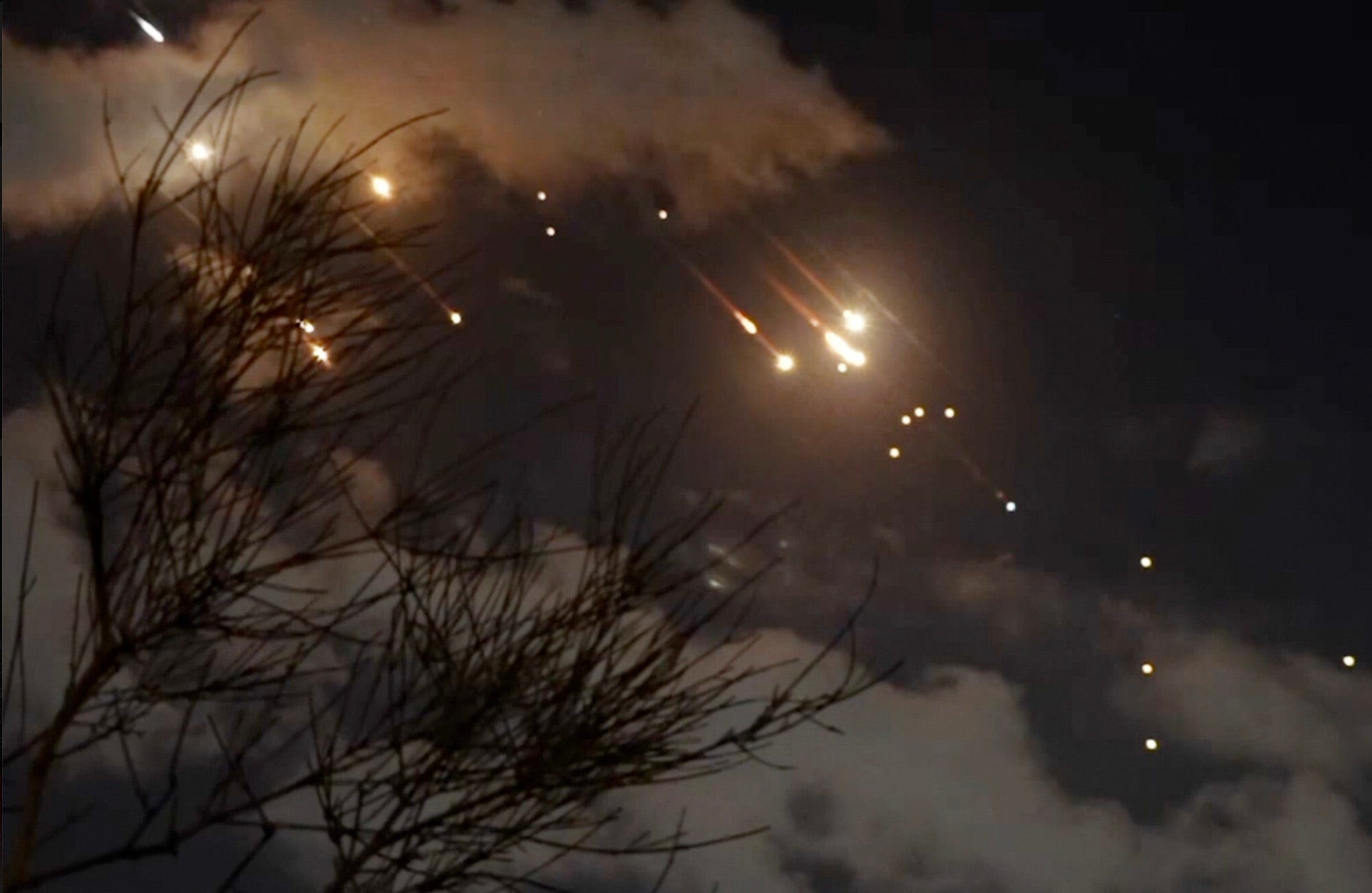
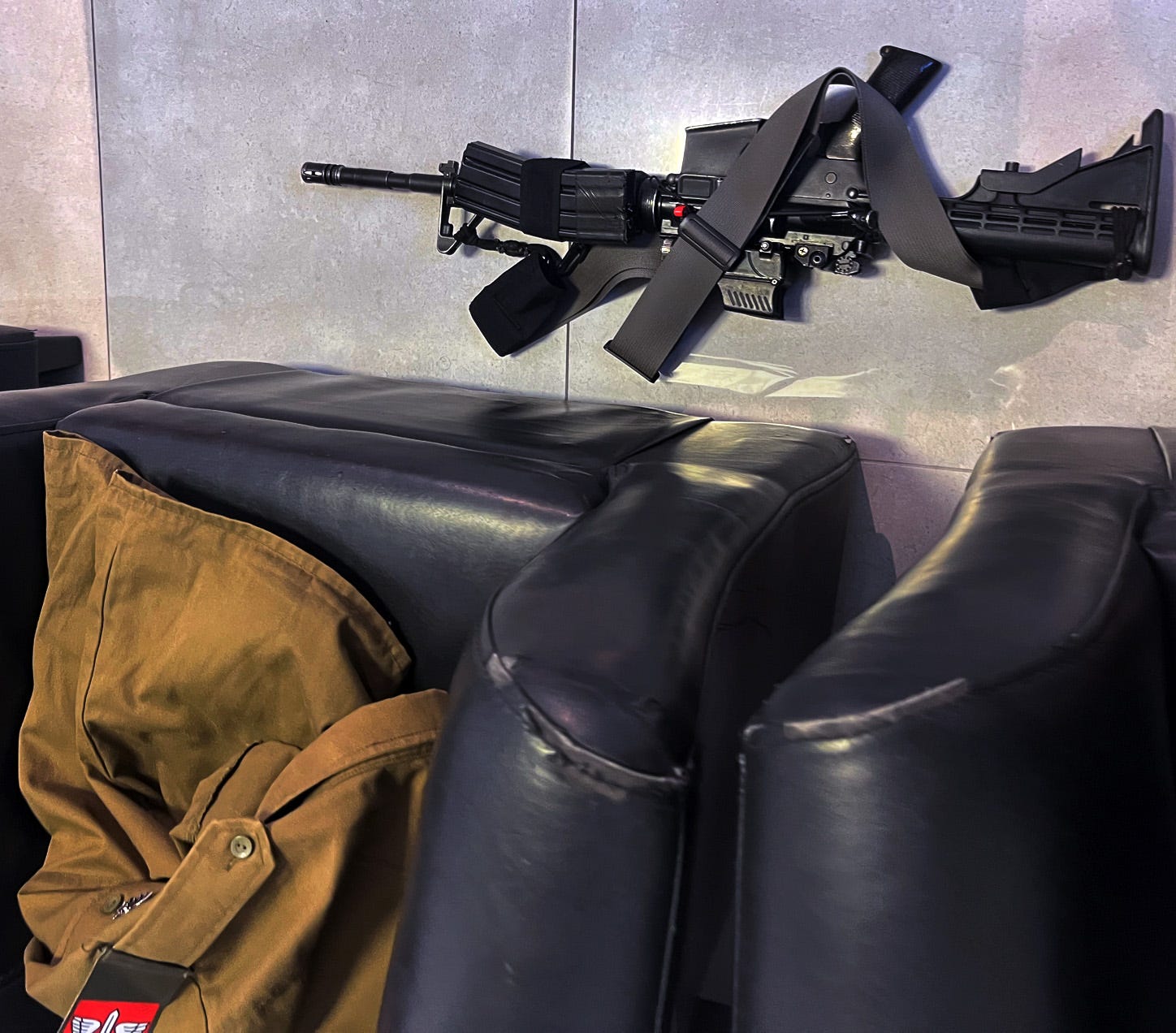
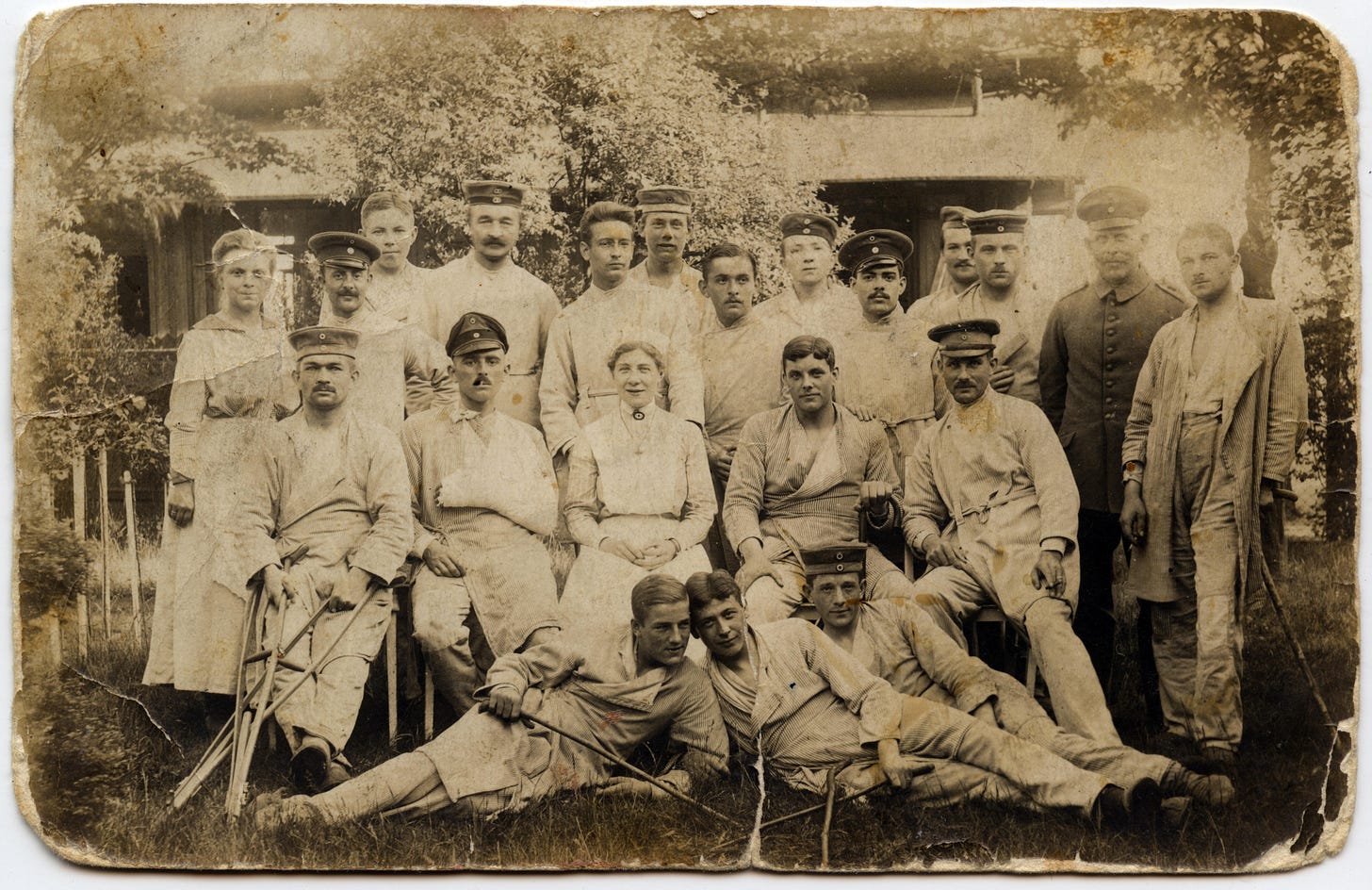
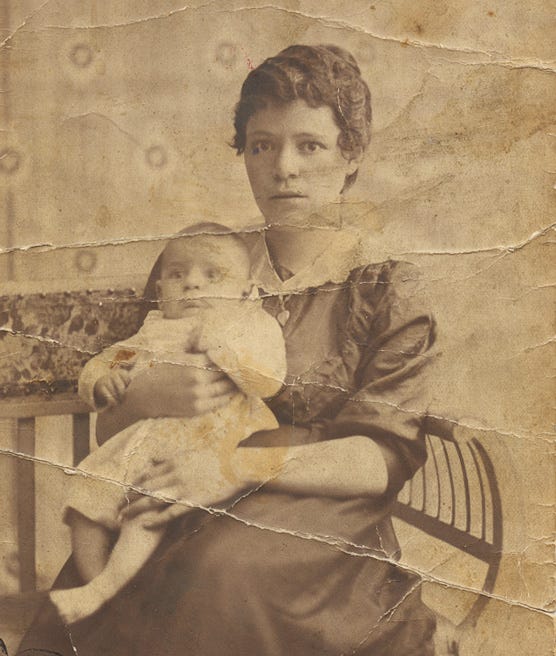
Thanks for writing / documenting this, Paul.
So glad you documented that rare and miraculous day.